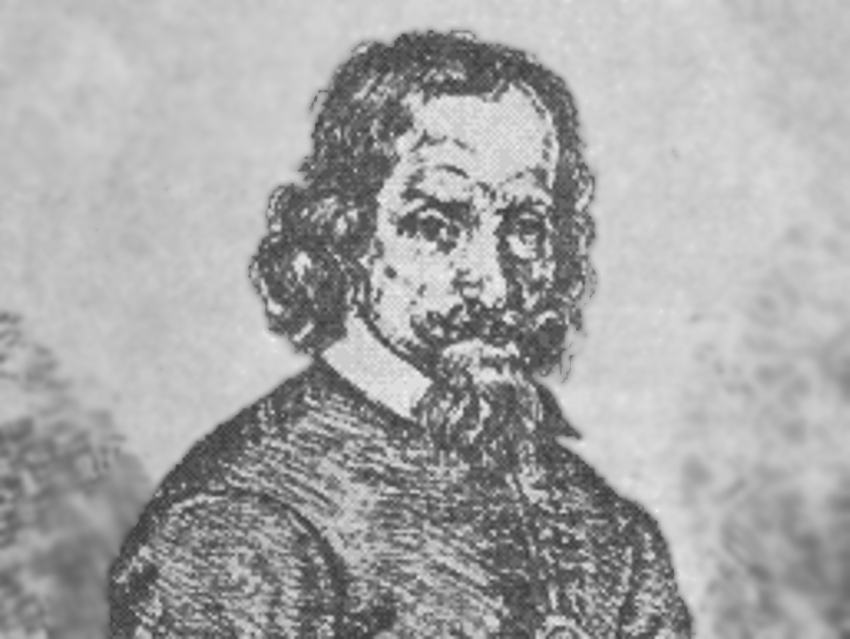Johann Rudolph Glauber was born on March 10, 1604, in Karlstadt, Germany, as the son of a barber. He was born into a large family and orphaned early. Glauber first worked in the manufacturing of mirrors and later as an apothecary and alchemist.
Among other locations, Glauber lived and worked in Vienna and Salzburg, both Austria, in Gießen, Wertheim, Kitzingen, Frankfurt am Main, Bonn, and Cologne, all Germany, in Basel, Switzerland, in Paris, France, and in Amsterdam, The Netherlands. In Gießen, he served as Chief Apothecary to the court. In Amsterdam, Glauber created his own business manufacturing pharmaceuticals and led a laboratory with six staff members.
Glauber is considered one of the earliest chemical engineers. He developed processes for the production of common chemicals, such as sulfuric acid, nitric acid, and hydrochloric acid. He also synthesized sodium sulfate from sodium chloride and sulfuric acid. This salt, which Glauber called “sal mirabilis”, is a useful laxative. Its decahydrate is still known as “Glauber’s salt” today. Glauber also prepared metal chlorides such as antimony trichloride, arsenic trichloride, tin tetrachloride, and zinc chloride. In addition, he worked on fermentation and developed laboratory equipment.
Glauber’s endeavors were commercially very successful. He was presumably one of the first chemists able to live off their work in the field. Based on his experience, he proposed that a chemical industry might help Germany’s economic recovery after the Thirty Years’ War (1618–1648).
Glauber became seriously ill starting in 1660. It is thought he suffered from heavy metal poisoning caused by his laboratory work. He had to sell his laboratory equipment and part of his personal library in 1668 after becoming too sick to support his family. Glauber died on March 16, 1670, in Amsterdam.
Johann Rudolph Glauber is the answer to Guess the Chemist (99).
Sources
- Sternstunden der frühen Chemie: von Johann Rudolph Glauber bis Justus von Liebig,
Ernst F. Schwenk,
C. H. Beck, 1998.
ISBN: 978-3-406-42052-8
Selected Publications
- Furni Novi Philosophici Oder Beschreibung einer New-erfundenen Distillir-Kunst (in German),
Johann Rudolph Glauber,
Fabel, Amsterdam, 1646. - Dess Teutschlands Wohlfahrt (in German),
Johann Rudolph Glauber,
1656–1661. - Johannis Rudolphi Glauberi Philosophi & Medici Celeberrimi Opera Chymica (in German),
Johann Rudolph Glauber,
Götze, Frankfurt am Main, 1658.




